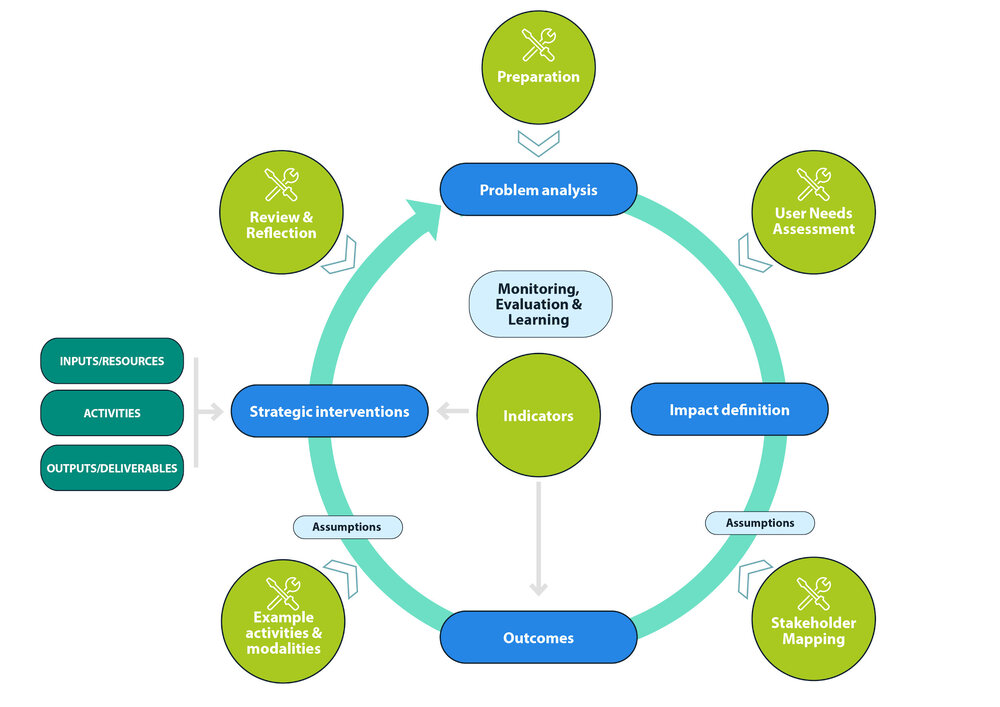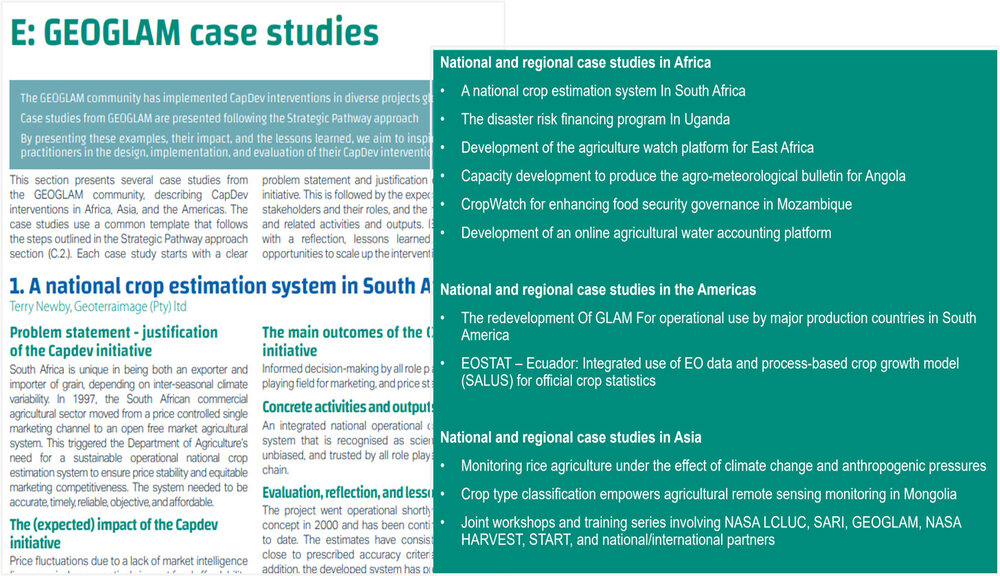GEOGLAM launches guidance on capacity development

Capacity development is integral to empowering transformations across any development sphere, helping individuals, organizations and communities derive valuable and sustained impacts through the co-creation of information for decision making.
The GEO Global Agricultural Monitoring (GEOGLAM) community has, for the last decade, co-developed products and services aimed at leveraging Earth observations (EO) to provide evidence-based information for agricultural markets and food security around the world. Over time, and in developing and delivering these global, regional and national products and services, the need to develop and strengthen institutional capacities for using EO science and data to inform policy, decisions and actions around agriculture and food security has increasingly become apparent and can no longer be taken for granted.
As a response to this need, the community has developed a hands-on resource to guide the design, implementation and evaluation of capacity development activities and interventions. The guidance is an example of on-going capacity development efforts, led and conducted by the GEOGLAM community worldwide. It provides practical tools to conduct and scale-up capacity development interventions, based on the experiences and lessons from the community.
Many GEOGLAM partners were already connected through technology transfer and other capacity development engagements spread across numerous programs and projects, well before the formal inception of GEOGLAM. Capacity development has, thus, always been key to GEOGLAM partners and activities. In due course, our experience has shown that when countries autonomously gather their own information and/or develop their own products, they are easily trusted and quickly applied to national program and policy decision making. This then enhances the effectiveness and efficiency as well as the sustainability of capacity development interventions and increases subsequent impacts and overall human well-being.
GEOGLAM’s guiding principles are centered around co-creation with stakeholders, to determine the pathway towards a desired impact; a pathway that begins with problem analysis to identify the specific challenge that needs to be addressed, works backwards to the positive impact to be achieved through the outcomes, and finally ends with the strategic capacity development interventions that are needed. The pathway further includes practical tools in each step, to help you design effective and impactful interventions, along with the qualitative and quantitative indicators and a monitoring, evaluation and learning system to help iterate and improve the whole process over time.

The guidance has an emphasis on practice and learning by doing. It includes 12 case studies from the community, covering different agriculture and food security topics from several countries around the world. Each of these case studies presents a specific problem, impact, outcome, and intervention, as well as the challenges and opportunities for improvement or scaling up.

The target audience includes the GEOGLAM community as well as those organizations that aim to support GEOGLAM through funding, provision of satellite data and other in-kind contributions. Further, the document can be a resource for the entire GEO community to support capacity development efforts.
This living document presents about three years of work by the GEOGLAM Capacity Development Team, much of which was voluntary, so, a very big thank you to the more than 30 contributors to this document.
To contribute more case studies, tools or for general feedback and questions, write to us at: geoglam@geosec.org or a.nelson@utwente.nl